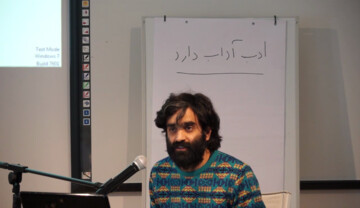The concept of adab in Iran and Iran literature could be defined as the ideal refinement of thought, word and deed. It is suggested that the notion is rooted in the Zarathustrian triad of "good thoughts, good words and good deeds." According to the Encyclopedia Iranica, apart from a genre of literature, adab in Persian means education, culture, good behavior, politeness, proper demeanor; thus it is closely linked with the concept of ethics. The word adabiat (literature) is also derived from this root. The concept is applied to all aspects of life, as a way of being and as the encyclopedia suggests, ways of implementing this ideal in every field are specified by precise instructions, such as regard for proportion (andāza) or moderation (mīāna-ravī) in conduct. Adab thus covers all forms of human activity from speech, to generosity, from rules of the battlefield, to friendship and marriage, from gardening to eating and drinking, from changing the bedclothes to playing music and cooking; ways of living and ways of dying. Adab is what we can call the aesthetic of being human, a mode, a practice encompassing vita activa and contemplativa. Walter Benjamin wrote, “we can say: a work which exhibits the correct political tendency need demonstrate no further qualities. We can also decree: a work which exhibits the correct tendency must necessarily exhibit all other qualities. “ One can suggest, if the work exhibits adab it need demonstrate no further qualities. Perhaps, we can apply adab to our practices, institutional and otherwise, in and out of contemporary art.


